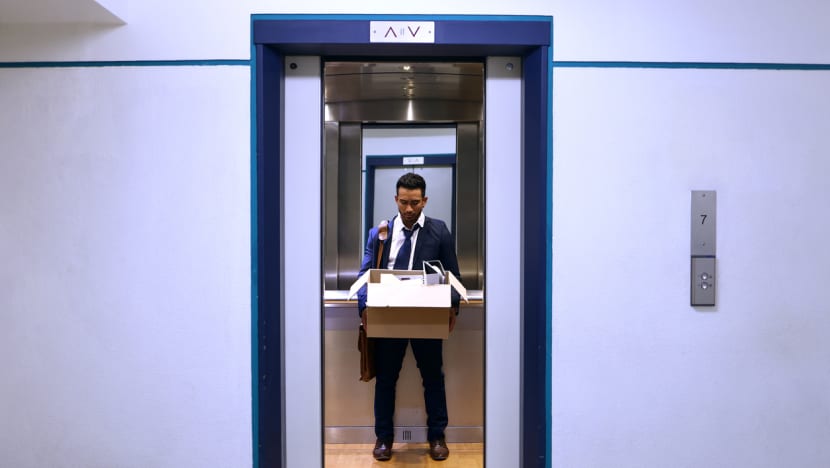Commentary: Think career resilience, not job security, amid season of layoffs
Stellar work performance and consistent skills upgrading offer workers no guarantees they will be spared retrenchment. Think of “future-fitness” instead, says JetDev’s Jolyn Ng.


This audio is generated by an AI tool.
SINGAPORE: Over 260,000 tech jobs were cut last year, and it seems like retrenchments are still coming. According to tracking website Layoffs.fyi, more than 50,000 tech workers have been laid off in 2024 so far.
Singapore too saw employees lose jobs in major firms like Lazada and Amazon this year, with Temasek-backed online cashback platform Shopback the latest to announce a 24 per cent cut to its headcount on Mar 19. And it’s not just tech: Tetra Pak will axe about 300 manufacturing jobs while Unilever will cut marketing roles in Singapore.
Such massive layoffs for an extended period of time would have been an anomaly not too long ago, especially with some companies making cuts despite reporting healthy revenue.
Now it dawns that this could become the norm - even for professionals at the top of their game. Employees’ focus naturally turns to how we can increase job security and protect ourselves from getting retrenched.
GOOD PERFORMANCE IS NOT JOB SECURITY
The worry for employees now is that stellar performance and consistent skills upgrading promise no such security. The mantra ingrained in many of us - work hard, get ahead - offers no guarantees.
It doesn’t matter how innovative, productive or any other KPI an employee had on their performance review.
The reality is that strategic business decisions are beyond individual control. The top reason for retrenchments was business reorganisation and restructuring, according to the Ministry of Manpower statistics.
Perhaps it was a bad business call. Shopback CEO Henry Chan acknowledged in a message on the company’s website that he made “the mistake of pursuing too many directions as a company and expanding our team too rapidly”. Meta CEO Mark Zuckerberg wrote in November 2022 after laying off more than 11,000 employees that he had bet on the continued growth of e-commerce after the pandemic but “got this wrong”.
Businesses also shut offices, as they shift priorities and streamline operations. Home appliances maker Electrolux confirmed in February it would shut its Singapore regional office, axing local jobs while some of the leadership team relocate to Bangkok.
And in a time when industries are transforming to keep up with technology and innovation, particularly with artificial intelligence, layoffs are seen as a quick way to free up cash or stay lean to pivot quickly with trends.
CAREER RESILIENCE IS ABOUT THE EMPLOYEE
What’s the point of upskilling if we can’t prevent our retrenchment? For one, it’s about the worker, not the job.
There are always two responses to change: Resign oneself as a passive pawn or build resilience and bounce back. Instead of focusing on desperately saving legacy jobs, we can direct our energy into building “future-fit” agility across roles and industries.
Think of future-fitness as embracing change confidently, ensuring one is strategically prepared to thrive in disruption and uncertainty, not just surviving to protect jobs. Being adaptable and continuously picking up new skills is one way to do this.
It might be hard when so many of us attach our identity - and sometimes self-worth - to job titles and employers. The future-fit view career shifts as organisational recalibrations rather than personal failures warranting self-blame.
Companies may change rapidly, but our capabilities stay with us as valuable assets.
SKILLS THAT EMPLOYERS CANNOT PASS OVER
Intentionally developing expertise thus becomes crucial. There are skills aligned to emerging domains like learning to work with AI and cross-training into adjacent roles; there are also evergreen skills like active networking, critical thinking or conflict resolution.
They may not protect jobs per se, but they act as continual buffers for employees to expand options and traverse uncertainty. Staying open to continual learning and exposure to varied opportunities can enable fluid career pivots as industries transform.
I see this firsthand in my own team where software engineers actively acquire machine learning, Web3.0 and AI capabilities, grabbing hold of opportunities to learn and contribute as they pre-empt new industry demands. Non-engineering members also expand their understanding of relevant tech and stay agile during such times.
Industry-wide, aggressive hiring of AI talent amid tech layoffs further signal the importance of expanding relevant skills for the future to boost market value.
But upskilling alone will not be enough either. Employees must also cultivate a resilient attitude as our operating environment continues changing. This includes adaptability, learning agility and embracing change - or how to reinvent ourselves across corporate moves.
Job security is really skill security in today’s age of change. With deliberate effort, we have the capacity to transform difficult times into opportunities for self-growth. There may be little we can do differently to save our jobs, but a lot we can do to protect ourselves.
It is the best way to thrive amid economic headwinds, helping us to ride waves rather than be swept away. Treading water will only keep us afloat for so long.
Jolyn Ng is the Head of Growth at JetDevs, a Singapore-based provider of on-demand software engineers.



















